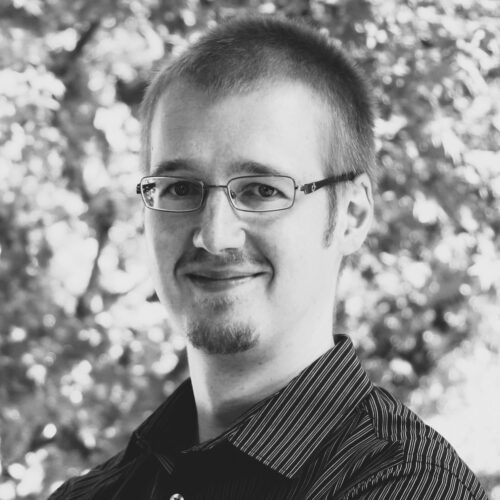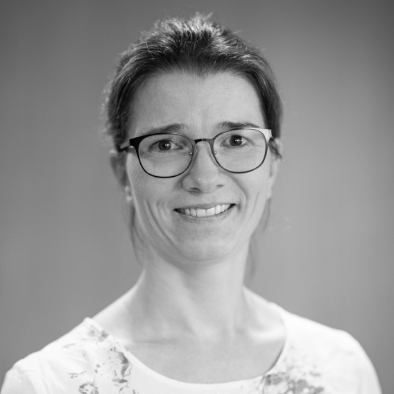BIRDS OF A FEATHER
SUBMISSION
Sessions
JUNE 10-12, 2025
BIRDS OF A FEATHER SUBMISSION

BOF CHAIR
David Boehme, Lawrence Livermore National Laboratory, USA
BoF Deputy Chair
Carsten Trinitis, TUM, Germany
We provide the high performance computing community with a casual discussion platform based on the ISC 2025 topic areas and shared interests. Each BoF lasts 60 minutes. The BoFs are meant to foster engaging conversations and not formal presentations. In your proposal, please demonstrate a clear concept detailing the interactive nature of the BoF.
For more helpful information, please read our BoF guidelines.
Closed
Full Submission Deadline
February 24, 2025 February 28, 2025
Notification of Acceptance
JUN 10-12, 2025
BoF Sessions
All Dates
MAY 16, 2025
Submission of Final List of Speakers Deadline
NEW AT ISC 2025
Are you interested in sparking conversations in small groups? Why not hold your BoF at ISC with a roundtable setup? We have room for ten people at eight roundtables, which we think is perfect for lively conversations with the audience.
INFORMATION FOR SPEAKERS
For guidance on preparing and delivering your presentation, please refer to our Speaker Manual, which provides all necessary details for your upcoming contribution at ISC.
TOPIC AREAS
BoF sessions are intended to cover all topic areas as follows.
System Architecture & Hardware Components
- Beyond Moore’s Law
- Composable Disaggregated Infrastructure
- Data Center Infrastructure and Cooling
- Emerging Computing Technologies
- Extreme-scale Systems
- Heterogeneous System Architectures
- Interconnects and Networks
- Memory Technologies and Hierarchies
- Storage Technologies and Architectures
- Sustainability and Energy Efficiency
Programming Environments & System Software
- Compiler and Tools for Parallel Programming
- Domain-specific Languages and Code Generation
- Energy Management
- HPC in the Cloud and HPC Containers
- Parallel File Systems
- Parallel Programming Languages
- Resource Management and Scheduling
- Robustness and Resilience
- Runtime Systems for HPC
- Scalable Application Frameworks
- System and Performance Monitoring
Algorithms, Methods & Performance
- Extreme-scale Algorithms
- Mixed Precision
- Novel Algorithms
- Numerical Libraries
- Optimizing for Energy and Performance
- Performance and Resource Modeling
- Performance Measurement
- Performance Tools and Simulators
Applications & Use Cases
- Application Workflows for Discovery
- Bioinformatics and Life Sciences
- Chemistry and Materials Science
- Computational Physics
- Earth, Climate and Weather Modeling
- Engineering
- Geosciences
- Industrial Use Cases of HPC, ML and QC
- Visualization and Virtual Reality
Machine Learning & AI
- AI Applications powered by HPC Technologies
- Digital Twins and ML
- High-Performance Data Analytics
- HPC Simulations enhanced by Machine Learning
- HPC System Design for Scalable Machine Learning
- Large Language Models and Generative AI in HPC
- ML Systems and Tools
Quantum Computing
- Integration of Quantum Computing and HPC
- Quantum Computing – Basics and Theory
- Quantum Computing – Technologies and Architectures
- Quantum Computing – Use Cases
- Quantum Program Development and Optimization
- Quantum-inspired Algorithms and Technologies
Community & HPC
- Community Engagement
- Development of HPC Skills
- Diversity and Inclusion
- Education and Training
SUBMISSION GUIDELINES
A BoF submission includes:
- Title of the BoF session
- BoF organizer/speaker information
- Short abstract (500 words maximum)
- Topic area
- One to five keywords
- Maximum intended fraction of time spent on presentations
- The preferred room setting
- Description of approach to make the BoF interactive
- Targeted audience
- Estimated number of attendees
- Summary of BoF history (if applicable)
Review Process
- Each proposal is expected to receive a minimum of 3 reviewers
- BoFs will be evaluated based on originality, significance, quality, clarity, and diversity, as well as a clear description of the required interactive nature of a BoF
- Not all highly rated proposals may be accepted due to program capacity and the need for variety
TERMS & CONDITIONS
- By submitting a BoF proposal, you agree to host the BoF session in person in Hamburg.
- BoF presenters must be registered as ISC participants and need at least an Exhibition Pass.
- We will provide meeting room facilities and basic technical equipment for the BoF sessions. A BoF can be held in a mixed classroom/theater setting or in a roundtable format with discussion tables.
- If available, presentation slides will be published on the event platform (Swapcard) for registered attendees.
- We will not cover travel, accommodation, registration fees, or other associated costs.
BOF COMMITTEE
ISC 2025 Birds of a feather committee
- David Boehme, Lawrence Livermore National Laboratory, United States of America (Chair)
- Carsten Trinitis, Technical University of Munich, Germany (Deputy Chair)
- Samar Aseeri, KAUST, Saudi Arabia
- Lilit Axner, EuroHPC JU, Luxembourg
- Nick Brown, Edinburgh Parallel Computing Centre (EPCC), The University of Edinburgh, United Kingdom
- Stefano Corda, Huawei Technologies AG, Switzerland
- Lois Curfman McInnes, ANL, United States of America
- Rafael Ferreira da Silva, Oak Ridge National Laboratory, United States of America
- Marta Garcia, BSC, Spain
- Xu Guo, Edinburgh Parallel Computing Centre (EPCC), United Kingdom
- Fouzhan Hosseini, Intel, United Kingdom
- Aleksandar Ilic, INESC-ID, Instituto Superior Técnico, Universidade de Lisboa; Instituto Superior Técnico, University of Lisbon, Portugal
- Rasha Karakchi, University of South Carolina, United States of America
- Rika Kobayashi, Australian National University, Australia
- Stefan Lankes, RWTH Aachen University, Germany
- Jay Lofstead, Sandia National Laboratories, University of New Mexico, United States of America
- Jakob Luettgau, Inria, France
- Sabine Mehr, GENCI, HQI, France
- Carla Osthoff, National Laboratory of Scientific Computing, Brazil
- Erika Pellegrino, Leonardo S.p.A., Italy
- André Pereira, University of Minho, INESC TEC, Portugal
- Amir Raoofy, Technical University of Munich, Leibniz Supercomputing Centre, Germany
- Zia Ur Rehman, University of Salerno, Italy
- James Richings, Edinburgh Parallel Computing Centre (EPCC), United Kingdom
- Kristian Rietveld, Leiden University, Netherlands
- Harisankar Sadasivan, AMD, University of Washington Seattle, United States of America
- Naw Safrin Sattar, Oak Ridge National Laboratory, United States of America
- Tom St. John, Meta, United States of America
- Peter Thoman, University of Innsbruck, Austria
- Carsten Trinitis, Technical University of Munich, Germany
- Yonglei Wang, Linkoping University, ENCCS, Sweden
- Marion Weinzierl, University of Cambridge, United Kingdom
- Nicholas J. Wright, Lawrence Berkeley National Laboratory, NERSC, United States of America
- Brian J. N. Wylie, Forschungszentrum Jülich GmbH, Jülich Supercomputing Centre, Germany
- Arts Yang, NVIDIA, Germany
- Dewi Yokelson, Lawrence Livermore National Laboratory, United States of America
- Georg Zitzlsberger, NVIDIA, Germany
